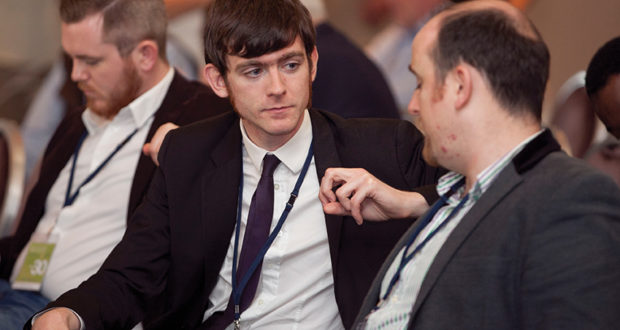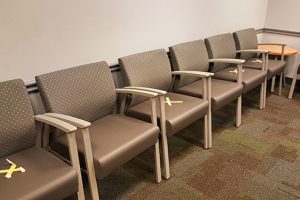Concern was expressed at the IMO annual meeting over recent elective surgeries cancellations, caused in part by the major spike of patients on trolleys in January.
“The knee-jerk reaction was to cancel elective surgeries,” NCHD Committee Chair Dr John Duddy told the meeting. “All hospital managers are doing is to make one group of patients suffer, in a bid to alleviate the suffering of another group. That is a very short-term, self-defeating approach that does nothing to alleviate patient suffering. It is bad for patients.
“The patients having elective hernia procedures or cholecystectomies postponed, come into hospital a number of months later with acute cholecystitis or incarcerated hernias. Patients who have lower back pain or radicular pain and who have their spinal operation cancelled, may be out of work for another nine months and have their chance of again becoming a productive member of society delayed,” he pointed out.
There was a huge demand and a lack of supply of hospital beds, Consultant Committee Chair Dr Peadar Gilligan told the annual meeting. To allow patients to continue to spend two or three days in EDs, pending availability of a hospital bed – while beds can be used for planned procedures – was “challenging to put it mildly”, he said.
Dr Gilligan cited the case of a 90-year-old man who was seen within four minutes of arrival at hospital by a triage nurse. He was seen within 16 minutes of arrival by the emergency medicine doctor. “The ED performed well and he was seen by the on-call consultant within two and a half hours of arrival. However, three days later, he was still in the ED awaiting a hospital bed, as there were no beds available. His cognitive functioning was impaired. He became very agitated and distressed by his experience in the ED. That is not a health service that any of us can be proud of.”
Dr Gilligan added: “The same teams that agree patients seen at EDs need to be admitted also must agree which patients need to admitted for elective procedures. We cannot allow acutely unwell patients requiring emergency admission to hospital to suffer inordinately. Otherwise their length of stay is going to rise and their morbidity will increase.”
Consultant Dr Mick Molloy cited an overcrowded New York hospital which had made the transition from a five-day to seven-day hospital and was thus able to reduce its bed capacity and still function better than it had previously. “We need to smooth activity across the whole week,” said Dr Molloy. “A five-day service is not now sufficient. It needs to be a seven-day service.”
 Irish Medical Times Medical News for Healthcare Professionals
Irish Medical Times Medical News for Healthcare Professionals








